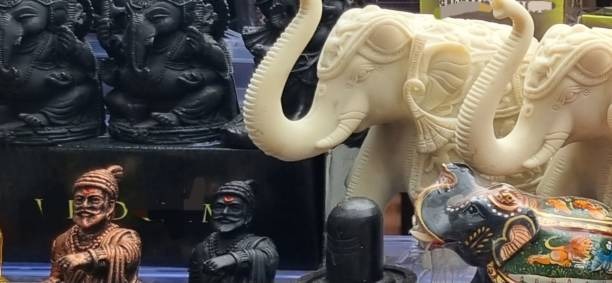Slant markers are upright memorials with a sloped front face, designed to be easily read when standing close by. Slant headstones provide a distinct combination of visibility, structure, and a compact footprint. Their form makes them suitable for both individual and companion gravesites, especially where space may be limited.
These memorials are typically crafted from solid granite, offering durability and timeless beauty. The slanted surface enhances visibility without the height of a full upright monument. Their design also supports clear engraving, making them ideal for names, dates, and meaningful inscriptions.
Before choosing any marker, it’s necessary to verify the regulations of the cemetery where it will be placed. Some burial grounds have strict guidelines concerning the size, material, and layout of slant headstones, which may limit your selection. Confirming these details early helps avoid changes or delays during the production process.
Rules can vary by location and may include specific base dimensions, stone color, or installation procedures. Knowing whether the cemetery handles installation or requires a third party is also important. This ensures the headstone will be accepted upon delivery.
Granite remains the most common material used for slant markers due to its resilience and aesthetic range. It is available in various colors, including grey, black, pink, and red, depending on the quarry source. The type of finish selected affects both the appearance and the longevity of the memorial.
Polished: Smooth, reflective surface for a formal look
Honed: Matte finish that feels refined but understated
Rock-pitched: Rough-textured edges for a more natural appearance
Choosing the right finish helps ensure the inscription remains legible over time and complements the surrounding setting.
Customization plays a key role in creating a memorial that feels personal and appropriate. Standard features often include names, birth and death dates, and brief inscriptions. Many also include symbols, religious emblems, or decorative artwork.
Designs can be engraved using sandblasting or laser etching, depending on the type of stone and its finish. Clear fonts and a balanced layout improve readability and visual harmony. Reviewing a layout proof before production helps ensure accuracy and satisfaction with the final result.
After the headstone is manufactured, it must be delivered to the cemetery in accordance with its specific policies. Some cemeteries accept direct shipments and handle installation internally, while others require outside services to complete the setup. Confirming this in advance helps avoid miscommunication or delays.
Delivery is typically coordinated with the cemetery to match installation timelines
Most providers include tracking and confirmation details
Fees may apply for placement, depending on cemetery policy
It’s important to confirm who handles placement to ensure proper alignment, positioning, and compliance with site standards.
For those selecting a companion marker or preparing a family plot, long-term planning is helpful. A well-chosen design can accommodate future inscriptions while maintaining a cohesive appearance. Many families choose to leave space for names and dates that can be added later.
Using consistent engraving methods and matching materials keeps the memorial visually unified over time. Planning ahead also avoids the need for replacement stones or redesigns. Keeping a record of font choices and layout details ensures future updates can be completed accurately.
Choosing the right slant headstone involves a balance of design, rules, and long-term vision. From confirming cemetery guidelines to selecting materials and arranging delivery, each decision contributes to a respectful tribute. With thoughtful planning, the result is a lasting and meaningful marker.




Want to add a comment?